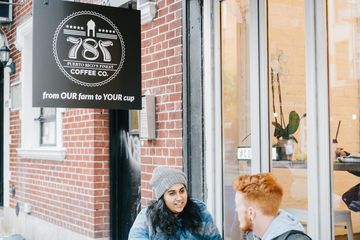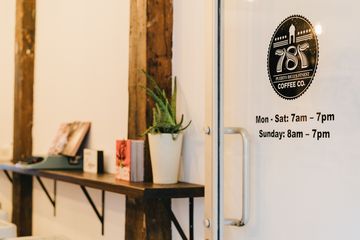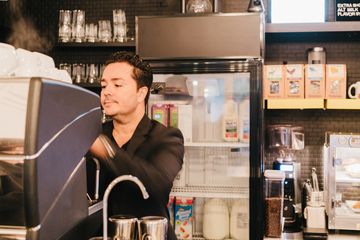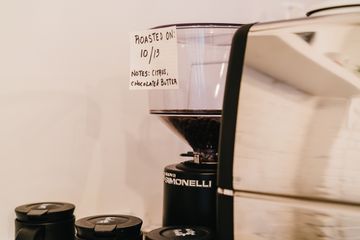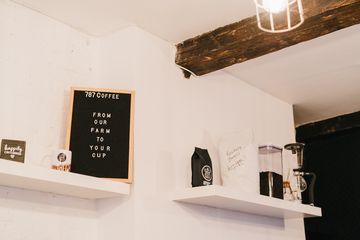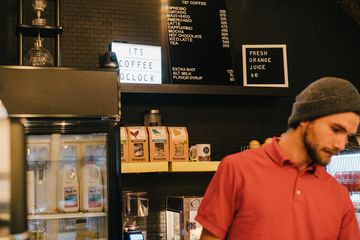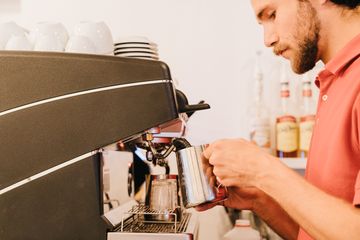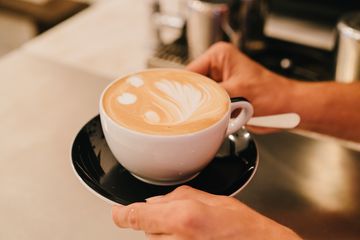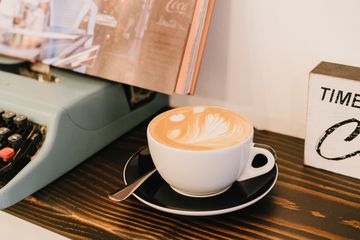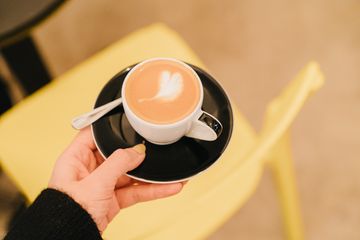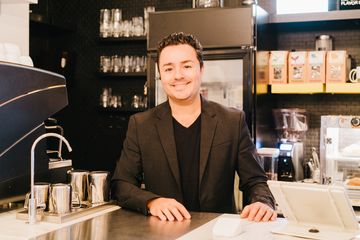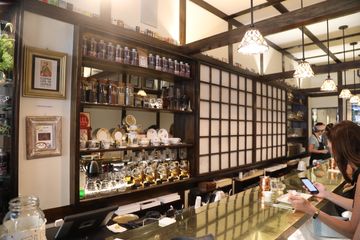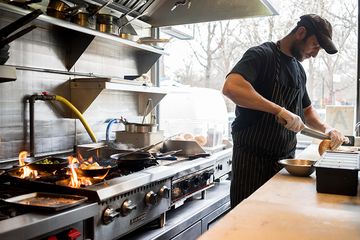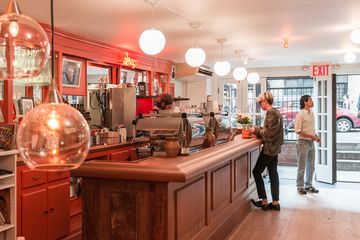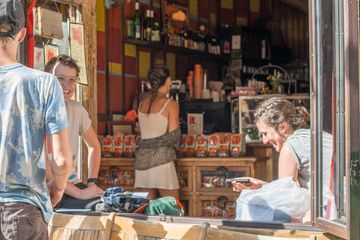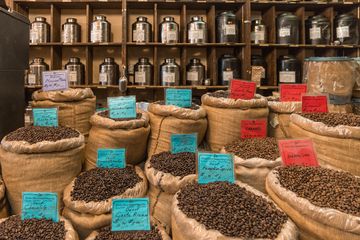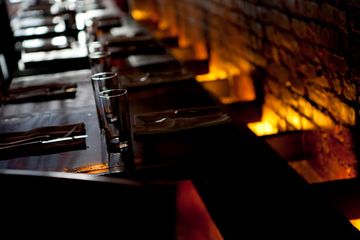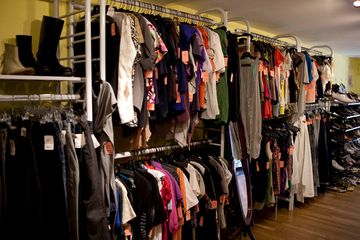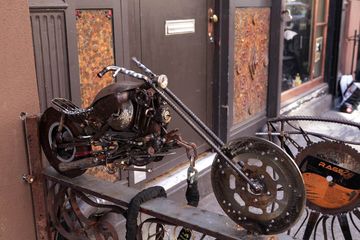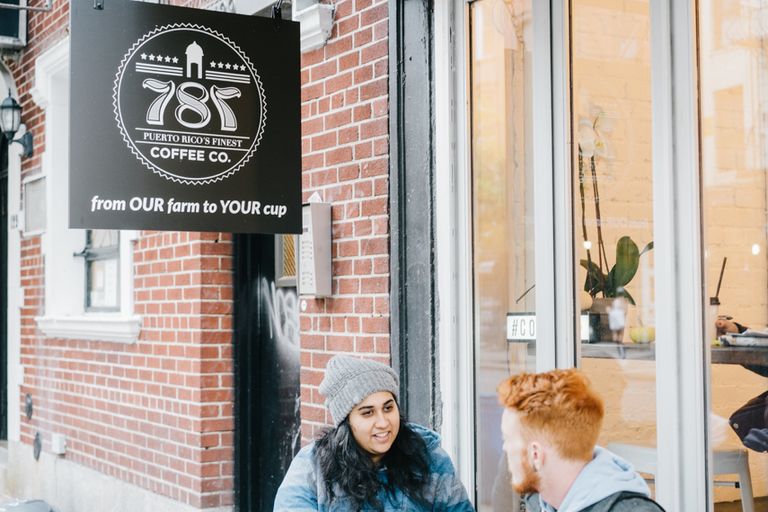
Sam Sepulveda grins as he talks about working in 787 Coffee’s new location in the East Village. “Here, when I’m doing the barista position, I get to tell the story, and people really enjoy that. Because most of the time you don’t know where your coffee’s coming from. And for me, it’s really fulfilling to say, ‘Hey, we planted this tree.’ These beans are my babies.”
787 Coffee is a small and cozy cafe, with a wall of windows gazing out at 7th Street, and exposed wood beams crossing the ceiling. The coffee mugs and bags are decorated with images of old San Juan, colorful buildings that evoke Sam’s favorite place in Puerto Rico. Manhattan Sideways opted to try a cortado and a seasonal pumpkin latte. Rich and buttery, the coffee was the perfect treat for a chilly autumn afternoon.
In 2014, Sam and his partner, Brandon Pena, purchased an abandoned coffee farm in Maricao, Puerto Rico. Located in a secluded region high in the mountains, the population of Maricao had been dwindling over the years as the agricultural industry that once formed the bedrock of its economy faded and young people moved away in search of jobs. Sam and Brandon picked the location, in addition to the quality of its land for coffee-growing, in the hopes that their business would have a positive impact on the community. They employ locals and follow higher than fair trade standards. “What we pay our workers in an hour, sometimes they pay that in Africa or South America in a two-day shift. So we’re making a difference there. We’re making a difference in their lives.”
Neither Sam nor Brandon was a coffee expert at the start, so they traveled the world learning how to grow and make coffee. The pair started out by selling green (a.k.a. un-roasted) beans before deciding to go vertical in 2016. Now they handle every aspect of the coffee-making process themselves, from planting and harvesting to roasting to latte art.
The journey has not been without its setbacks. In 2017, Hurricane Maria devastated 787 Coffee’s plantation, destroying 92% of the crop or approximately 30,000 trees. The hurricane also forced them to close their first coffeeshop in Maricao, but the pair has not let that slow them down: they managed to salvage as much coffee as they could from the wreckage and, as of the fall of 2018, were in the process of replanting. And then, at that same time, after several successful pop-up cafes, they opened their first permanent New York City coffeeshop in the East Village. Like every aspect of their business so far, the coffeeshop is first and foremost about the people. They want it to be a place where guests feel welcomed and at home, where the environment warms them as much as the drinks. “We don’t sell you a cup of coffee,” Sam says, “We sell you an experience.”
